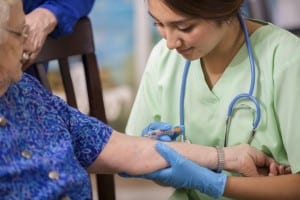Staying Healthy in Ecuador: Safety Tips and Guide to Immunizations
LiveTheLifeinEcuador | March 14, 2016
Ecuador may be only about the size of Wyoming and smaller than other countries surrounding it in South America, but its immense natural, physical, and cultural beauty surpasses many of its neighbors.
It’s a wondrous place to start your adventure in, whether you’re going on a short trip, or staying a lot longer.
We want you to experience all the good things the country has to offer. So we’ve prepared a list of safety and health tips for you to keep in mind before, during, and after your stay.
Before your trip
 See a doctor
See a doctor
It’s important that you consult a travel medicine specialist for questions and medical recommendations about the place you’re going to, 4 to6 weeks before your trip.
Ask about recommended vaccines for the area
Whenever you travel abroad, it’s always recommended to be up to date on routine vaccinations like diphtheria-tetanus-pertussis vaccine and your yearly flu shot, among others. For Ecuador, in particular, the Centers for Disease Control and Prevention (CDC) strongly urge vaccinations against hepatitis A and B, malaria, and yellow fever, among others. Here’s a full list of CDC-recommended vaccines.
Have a first aid kit
Although Ecuador’s health care system is pretty good and can handle most emergencies and common illnesses, a well-equipped first aid kit is still a great thing to bring with you, especially if you’re going to a remote area.
Get travel and evacuation insurance
It just makes sense to get yourself covered. Insurance is pretty basic for most situations, whether you’re at home or abroad.
During your trip
Have a back up
If you can travel with someone else, that would be ideal. Otherwise, inform your hosts, the hotel concierge, or someone else about your whereabouts or schedule for the day,in case of emergencies, medical or otherwise. Let them know your mobile number and save theirs on your phone.
Be careful with what you eat
Be wary of food-borne diseases. Exercise caution when buying food from street vendors and make sure the ice or the water you drink comes from a safe source. When in doubt, go for purified, boiled,and bottled water.
Stay away from places with malaria
Mosquitos that transmit this deadly disease prefer low-lying areas. So,be extra careful when visiting these places.Follow your doctor’s advice about taking anti-malaria pills and protecting yourself against mosquito bites.
Avoid getting tattoos and piercings from dubious sources
Aside from unprotected sex, hepatitis B can be contracted from unsterilized needles used for tattoos and piercings. If you’re traveling to get a medical procedure, vet the surgeon or facility beforehand to make sure their reputation is above board.
Protect yourself from sun exposure
Ecuador lies smack on the equator. Even if it didn’t, it always makes sense to protect yourself from the sun’s harmful ultraviolet rays by using sunblock with a high SPF (sun protection factor). Wear a wide-brim hat and use an umbrella if you must. Bring water with you at all times, whether you’re on the beach or high up in the mountains.
Stay away from animals and insects
Do not approach, much less pet stray dogs or cats. Always be aware of your surroundings. If you encounter snakes or other animals, calmly back away and do not attempt to handle them.
If you do get sick or get into emergencies, seek capable medical attention as soon as possible.
Should you require assistance with anything, we are more than happy to help you, and will address any concerns. Just give us a call using the numbers indicated on the site, and ask us about the many different services we can provide.

